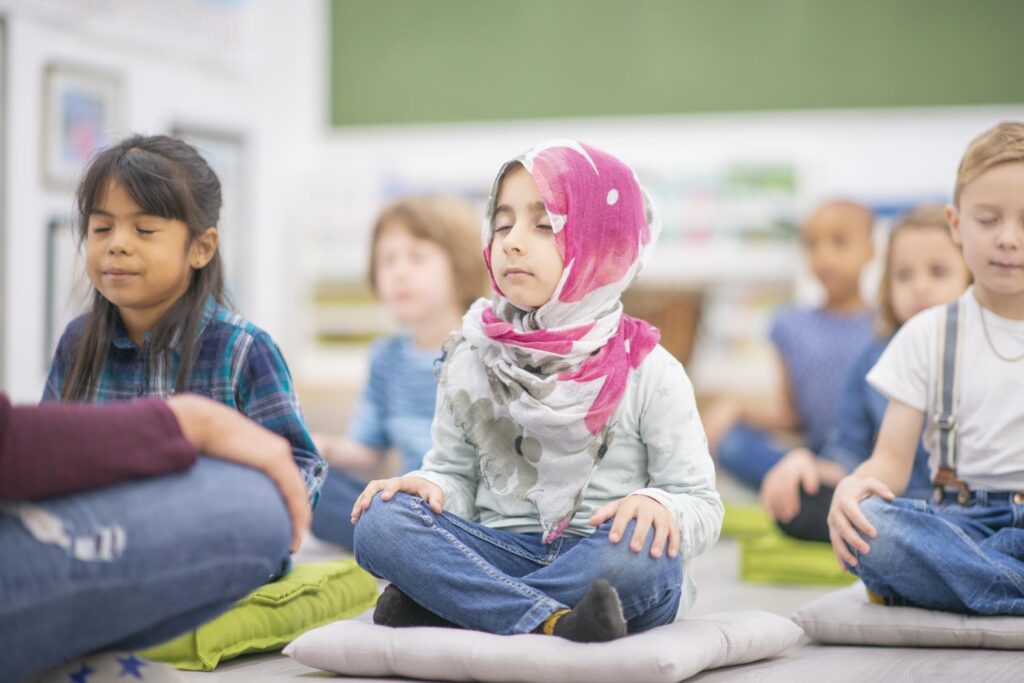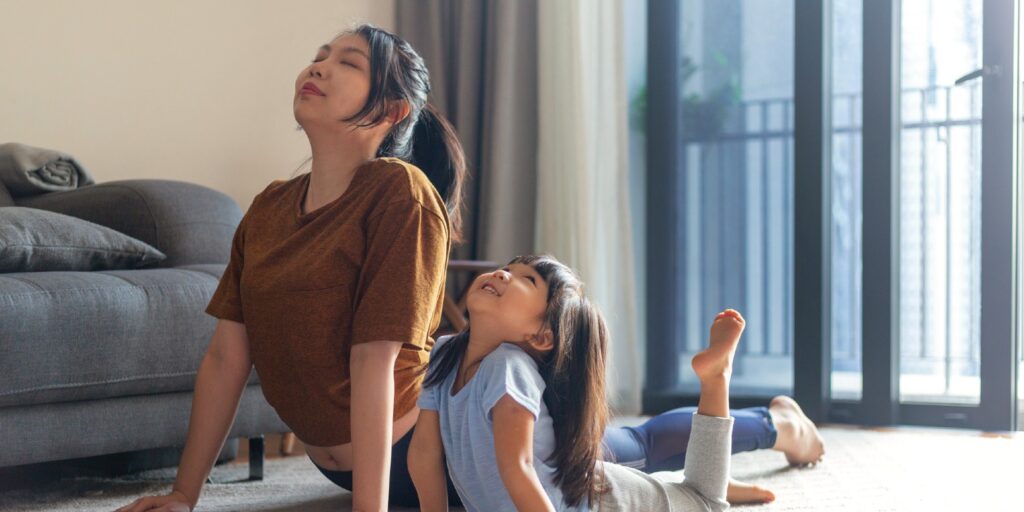Introduction:
In today’s fast-paced and increasingly digital world, teaching children the practice of mindfulness is more important than ever. Mindfulness is the ability to be fully present in the present moment, without judgment. It cultivates self-awareness, emotional regulation, and a sense of calm. By introducing mindfulness to children at a young age, we provide them with valuable tools to navigate the challenges they may face throughout their lives. In this blog, we will explore the benefits of mindfulness for kids and provide practical tips on how to introduce and nurture mindfulness practices.

Benefits of Mindfulness for Kids:
Mindfulness offers numerous benefits for children’s overall well-being and development:
a. Emotional Regulation: Mindfulness helps children develop emotional intelligence by recognizing and understanding their feelings. It empowers them to respond to challenging emotions in a calm and constructive manner.
b. Improved Concentration: Regular mindfulness practice enhances children’s ability to focus and concentrate, improving their academic performance and cognitive abilities.
c. Reduced Stress and Anxiety: Mindfulness teaches children to be present and to let go of worries about the past or future. It equips them with effective stress management techniques and helps reduce anxiety.
d. Enhanced Self-Awareness: Through mindfulness, children develop a deeper understanding of their thoughts, emotions, and bodily sensations. This self-awareness promotes self-acceptance and a positive self-image.
Introducing Mindfulness to Kids:
a. Mindful Breathing: Teach children to focus on their breath, feeling the sensation of air entering and leaving their bodies. Encourage them to take slow, deep breaths when they feel overwhelmed or need a moment of calm.
b. Mindful Observations: Engage children in activities that encourage them to observe their surroundings mindfully. This can include nature walks, sensory experiences, or guided visualizations where they imagine peaceful scenes.
c. Body Scan: Guide children through a body scan exercise, where they systematically focus their attention on different parts of their body, noticing any sensations without judgment.
d. Mindful Eating: Encourage children to eat mindfully by paying attention to the tastes, textures, and smells of their food. Teach them to savor each bite and be fully present during mealtime
Making Mindfulness Fun:
a. Mindful Art: Introduce activities like coloring, drawing, or painting where children can focus on the process, letting go of judgment and fully immersing themselves in the creative experience.
b. Mindful Movement: Incorporate mindful movement exercises such as yoga or tai chi designed for children. These practices help improve body awareness, balance, and flexibility while cultivating mindfulness.
c. Mindful Games: Play games that encourage children to be present and attentive. Examples include “I Spy,” where they mindfully observe their surroundings, or a listening game where they identify different sounds.

Leading by Example:
To foster a mindfulness practice in children, it’s essential for adults to lead by example. Practice mindfulness yourself and share your experiences with your children. Create a supportive environment where mindfulness is valued and integrated into daily routines.
conclusion:
Cultivating mindfulness in children provides them with lifelong tools for emotional well-being, self-awareness, and stress reduction. By introducing mindfulness practices, we empower children to develop resilience, focus, and a sense of inner calm. Encourage children to embrace mindfulness through breathing exercises, observations, body scans, and mindful eating. Make mindfulness enjoyable through art, movement, and games. As adults, let’s lead by example, demonstrating the power of mindfulness in our own lives. By nurturing mindfulness in children, we equip them with invaluable skills that will positively impact their overall happiness and success.
